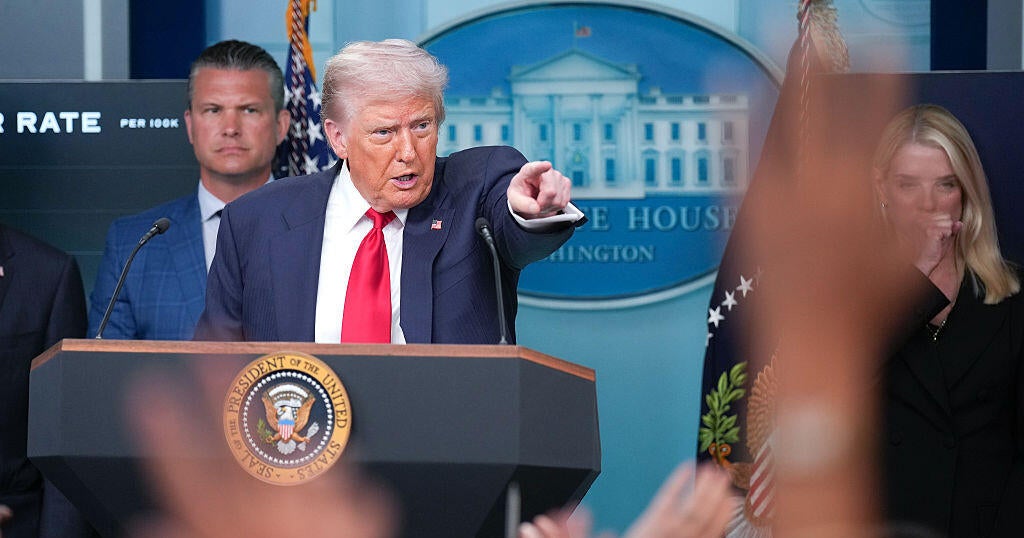Crunch time for NAFTA: 300,000 jobs at risk
President Donald Trump is getting tougher on trade, right in the middle of talks with Canada and Mexico over NAFTA.
The renegotiation of the North American Free Trade Agreement began last August, and the seventh round was completed in early March. In the week since, Trump has unveiled sweeping tariffs on imports of steel and aluminum, and called out Canada and Mexico on Twitter.
He ultimately granted a temporary exclusion to Canada and Mexico, but the rhetoric has "certainly increased tensions," said Oxford Economics senior economist Carlos de Sousa.
So what's at stake if the U.S. withdraws from the pact? The country could see a net loss of 300,000 American jobs, and costs for food and other products could rise, according to de Sousa and other economists at Oxford.
Assuming other tariffs would then take effect, U.S. economic growth would slow considerably – to just 1.7 percent, from de Sousa's current forecast of 2.4 percent.
"There is no doubt that tariffs will be passed on to the consumer," de Sousa said by email. "Investment costs would increase for American companies. If fewer investment projects are worth undertaking because of a NAFTA withdrawal, that means less job creation in the U.S. as well."
Other economists have forecast a stiffer impact if the U.S. withdraws from the pact, with Moody's Mark Zandi forecasting job losses of 1.8 million next year if trade partners retaliate with their own tariffs and NAFTA talks break down.
Industries whose supply chains are linked to Mexico and Canada would be the most likely to feel the brunt of the withdrawal, such as automobiles and manufacturing, Oxford economists said in a January research note. The impact would be worse in export-dependent Mexico, which could fall into a recession by mid-2019, according to de Sousa.
The talks are fluid, however, and Mr. Trump may be using the threat of steel and aluminum tariffs to pressure Mexico and Canada into making concessions. De Sousa said the willingness to grant an exclusion gave him confidence that talks will ultimately be successful.
Negations could stretch on until later this year, until the Mexican elections in July or the U.S. midterm elections in November, analysts predict. At the end of the March talks, U.S. trade representative Robert Lighthizer said the negotiations had only completed discussions on six out of 30 sections of the trade pact.
All sides agree that the agreement needs to be modernized given that it was signed in 1994.
"We feel like part of our job is cut all that red tape, update the agreement," said Canada's Foreign Minister Chrystia Freeland in a discussion about the negotiations. "You know, things like cassette decks are still included in what we trace for cars."
More than cassette players are at stake when it comes to automobile manufacturing, of course.
Currently, any car sold in North America that includes 62 percent of parts made within the region are exempt from import taxes, but the Trump administration wants to boost the threshold to 85 percent, with the idea that more parts would be manufactured within the U.S.
Agriculture is another topic of contention, with the Trump administration pushing for greater market opportunities for U.S. goods by reducing or getting rid of existing tariffs.
Lighthizer told Fox News in February that the U.S. is looking "to have a better balance."
"The biggest part of the problem between the two countries is that Mexico has an industrial policy -- it's a smart one -- that's designed to get auto companies to move to Mexico and then ship to the U.S.," he said. "A lot of these are companies with very little products that are made in America, so they are low U.S. content."





